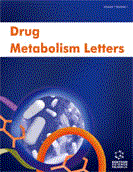Abstract
The ATP-binding cassette transporters P-glycoprotein (ABCB1, MDR1) and multidrug resistance protein 4 (MRP4) efflux irinotecan and its active metabolite SN-38 in vitro, and thus may contribute to system clearance of these compounds. Mdr1a/b-/-, Mrp4-/-, and wild-type mice were administered 20 or 40 mg/kg irinotecan, and plasma samples were collected for 6 hours. Irinotecan and SN-38 lactone and carboxylate were quantitated and data were analyzed with nonlinear mixed-effects modeling. Mdr1a/b genotype was a significant covariate for the clearance of both irinotecan lactone and SN-38 lactone. Exposures to irinotecan lactone and SN-38 lactone after a 40 mg/kg dose were 1.6-fold higher in Mdr1a/b-/- mice compared to wild-type mice. Plasma concentrations of irinotecan lactone, irinotecan carboxylate, and SN- 38 lactone in Mrp4-/- mice were similar to the wild-type controls. These results suggest that P-gp plays a role in irinotecan and SN-38 elimination, but Mrp4 does not affect irinotecan or SN-38 plasma pharmacokinetics.
Keywords: Irinotecan, multidrug resistance protein 4, pharmacokinetics, P-glycoprotein, SN-38, transporter, wild-type mice, P-gp plays, plasma pharmacokinetics, alkaloid camptothecin, closed-ring lactone, open-ring carboxylate, anticancer agents, biliary excretion, neuroblastoma, blank murine plasma, autoinjector, Akaike information crite-rion (AIC), Mrp4-deficiency, ATP-binding-cassette
 14
14














